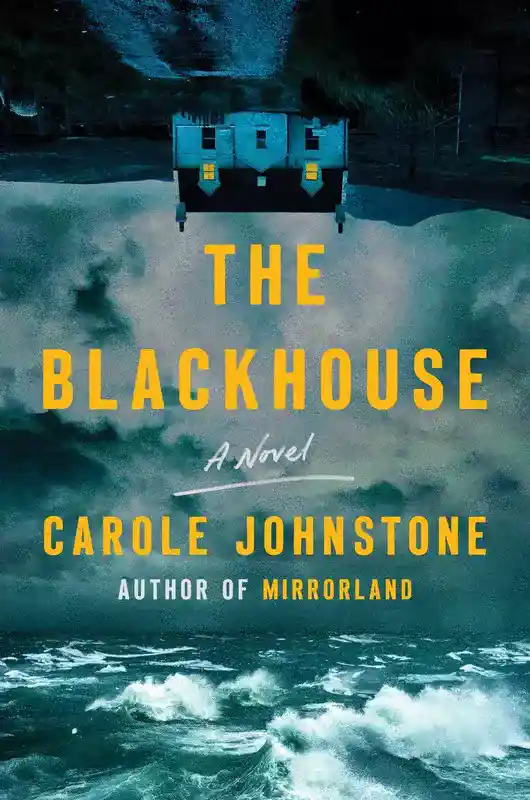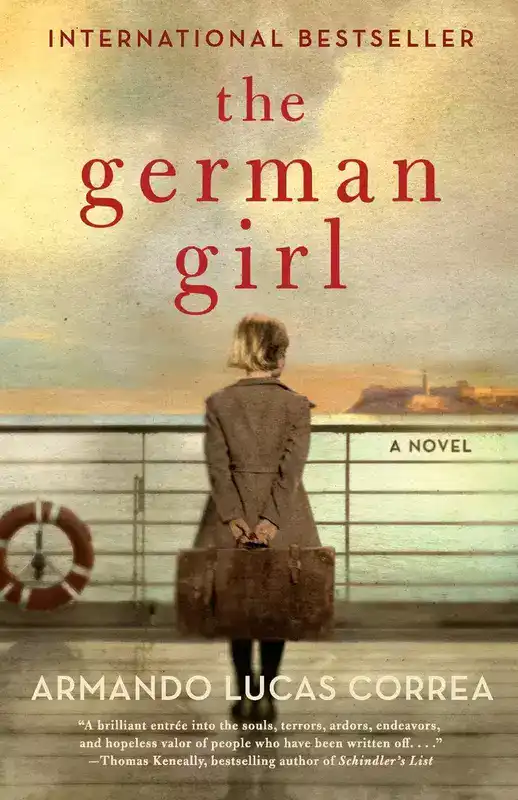This post may contain affiliate links. Read more here.
Book club questions for The Night Travelers by Armando Lucas Correa delve into the themes of motherhood, intergenerational trauma, and the power of memory. Spanning three different eras, this historical novel takes a close look at the lives of a single family and the ways in which their experiences are shaped by the times they live in. Through the use of evocative imagery and complex characters, The Night Travelers explores the ways in which the past informs the present and how one’s identity is shaped by their family’s history.
My book club questions contain spoilers, so make sure you’ve read the novel before diving in!
The Night Travelers is a thought-provoking and emotionally powerful novel that will leave readers questioning their own understanding of family, identity, and the impact of history. If you have an interest in historical fiction and exploring the complexities of human relationships, this is a book you won’t want to miss.
Below are a set of book club questions for The Night Travelers. These questions will guide your discussions and help you explore the novel’s themes and characters in more depth.
The Synopsis
Berlin, 1931: Ally Keller, a talented young poet, is alone and scared when she gives birth to a mixed-race daughter she names Lilith. As the Nazis rise to power, Ally knows she must keep her baby in the shadows to protect her against Hitler’s deadly ideology of Aryan purity. But as she grows, it becomes more and more difficult to keep Lilith hidden so Ally sets in motion a dangerous and desperate plan to send her daughter across the ocean to safety.
Havana, 1958: Now an adult, Lilith has few memories of her mother or her childhood in Germany. Besides, she’s too excited for her future with her beloved Martin, a Cuban pilot with strong ties to the Batista government. But as the flames of revolution ignite, Lilith and her newborn daughter, Nadine, find themselves at a terrifying crossroads.
Berlin, 1988: As a scientist in Berlin, Nadine is dedicated to ensuring the dignity of the remains of all those who were murdered by the Nazis. Yet she has spent her entire lifetime avoiding the truth about her own family’s history. It takes her daughter, Luna, to encourage Nadine to uncover the truth about the choices her mother and grandmother made to ensure the survival of their children. And it will fall to Luna to come to terms with a shocking betrayal that changes everything she thought she knew about her family’s past.
Separated by time but united by sacrifice, four women embark on journeys of self-discovery and find themselves to be living testaments to the power of motherly love.
In love with literature? Try audio books or writing classes
for free for 30 days.✨
Book Club Questions for The Night Travelers
1. Can you elaborate on the significance of the imagery of light and dark in the novel and its impact on the larger themes, characters and plot of THE NIGHT TRAVELERS?
2. How do you interpret the meaning of the epigraph, a line from the poet Rumi: “Night travelers are full of light,” and its relevance to the various characters in the novel and their different circumstances and eras?
3. The Night Travelers explores the dangers faced by mixed-race individuals under Nazi Germany’s Nuremberg Race Laws in the 1930s. How does the novel depict the trauma and displacement faced by these characters?
4. The novel follows the journey of the St. Louis liner to Cuba and the secrets and pain that follow new generations. How does the novel portray the theme of love and survival in the face of historical events?
5. How does the novel present an intimate portrayal of one family’s generations of mothers and daughters, and how does the author effectively convey the contrasts and similarities between the mother-daughter relationships in each generation?
6. Can you discuss the theme of intergenerational trauma as it is passed from mother to daughter in the novel and how the women in the story deal with it, and attempt to create a better life for their own daughters?
7. How does the character of Lilith exemplify the idea of “Lilith learns whatever she sets her mind to” as the story progresses?
8. How does the author use historical events and personal experiences to demonstrate the ways in which history repeats itself in the novel, both on a personal and geopolitical level?
9. Can you provide examples of how the historical events and attitudes depicted in the novel mirror current events and attitudes in our present day?
10. What causes Nadine, who initially resists learning about her past, to eventually change her mind and embrace her history?
11. How does Ally’s promise to ensure Lilith would always be known by her name, no matter where they sent her, play out throughout the course of the novel, and how does Lilith maintain her sense of self despite the various challenges and obstacles she faces?
12. Can you discuss the significance of Lilith feeling safer in the dark and how it affects her actions during the Cuban revolution?
13. How does the author use the contrast between Lilith and Elizabeth, two sisters with vastly different upbringings, to explore the themes of identity and family in the novel?
14. How do you believe the author’s choice to end the novel with multiple jumps in time affected your reading experience?
15. Were you surprised by the reunion between Lilith and Nadine, and how does this reunion impact the characters of Nadine and Luna?
16. Can you interpret the meaning of Luna’s realization that “One of her many lives had begun,” and how might this impact the way she lives her life moving forward?
Bonus Book Club Questions for The Night Travelers
My additional “The Night Travelers” book club questions analyze the themes of the book in a different way, and I would highly suggest adding them to your book club discussion as well.
17. The novel spans four generations of women and the life-changing decisions they make. How does the novel explore the concept of heartbreak being hereditary?
18. The Night Travelers is based on historical events, how does the author’s use of real-life events enhance the story?
19. The novel follows the lives of characters from pre-World War II Germany to the Cuban Revolution. How does the novel depict the themes of sacrifice and heartbreak through these historical events?
20. The Night Travelers explores the relationship between mothers and daughters. How does the novel portray the theme of mother-daughter relationships and their impact on the story?
21. The novel is a multigenerational story, how does the author use the structure to explore the theme of family and history?
22. The novel is filled with scenes of love, sacrifice and heartbreak. How does the author use these emotions to create a powerful and moving story?
Additional Recommendations
Hope you enjoyed my book club question for The Night Travelers by Armando Lucas Correa! Here are some more of my book club recommendations.
The Blackhouse by Carole Johnstone
A remote village. A deadly secret. An outsider who knows the truth.
Robert Reid moved his family to Scotland’s Outer Hebrides in the 1990s, driven by hope, craving safety and community, and hiding a terrible secret. But despite his best efforts to fit in, Robert is always seen as an outsider. And as the legendary and violent Hebridean storms rage around him, he begins to unravel, believing his fate on the remote island of Kilmeray cannot be escaped.
For her entire life, Maggie MacKay has sensed something was wrong with her. When Maggie was five years old, she announced that a man on Kilmeray—a place she’d never visited—had been murdered. Her unfounded claim drew media attention and turned the locals against each other, creating rifts that never mended.
Nearly twenty years later, Maggie is determined to find out what really happened, and what the islanders are hiding. But when she begins to receive ominous threats, Maggie is forced to consider how much she is willing to risk to discover the horrifying truth.
Unnerving, enthralling, and filled with gothic suspense, The Blackhouse is a spectacularly sinister tale readers won’t soon forget.
The German Girl by Armando Lucas Correa
A young girl flees Nazi-occupied Germany with her family and best friend, only to discover that the overseas refuge they had been promised is an illusion in this “engrossing and heartbreaking” (Library Journal, starred review) debut novel, perfect for fans of The Nightingale, Lilac Girls, and The Tattooist of Auschwitz.
Berlin, 1939. Before everything changed, Hannah Rosenthal lived a charmed life. But now the streets of Berlin are draped in ominous flags; her family’s fine possessions are hauled away; and they are no longer welcome in the places they once considered home. A glimmer of hope appears in the shape of the St. Louis, a transatlantic ocean liner promising Jews safe passage to Cuba. At first, the liner feels like a luxury, but as they travel, the circumstances of war change, and the ship that was to be their salvation seems likely to become their doom.
New York, 2014. On her twelfth birthday, Anna Rosen receives a mysterious package from an unknown relative in Cuba, her great-aunt Hannah. Its contents inspire Anna and her mother to travel to Havana to learn the truth about their family’s mysterious and tragic past.
Weaving dual time frames, and based on a true story, The German Girl is a beautifully written and deeply poignant story about generations of exiles seeking a place to call home.
Thank you for reading my book club questions and happy reading! ❤️

